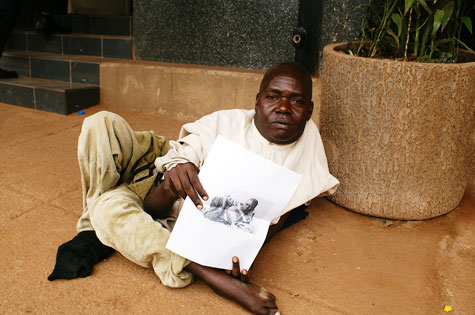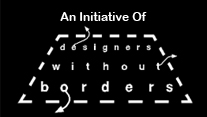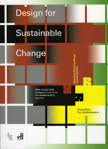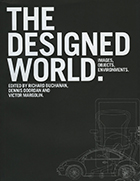Victor Margolin
Throughout history, people of privilege have always believed that they could live as they liked. Whether Emperor Augustus, Louis XIV, or the CEO of a successful dot,com, wealthy folks have viewed the world as a source of goods and services to which they were entitled either by virtue of asymmetric power, wealth, or both. Communist apparatchiks with inordinate power had their dachas and their natashas while the proletarian populace put up with life in communal apartments and endured long bread lines. Capitalists have understand that money entitles them to whatever they want, whether a Hummer, a McMansion, or a private jet. While Communism as an economic and social system has now collapsed, replacing Party apparatchiks with “new capitalists,” Capitalism, particularly the free-market kind, is experiencing a resurgence of health and vigor even as more and more poor people in capitalist societies are dropping off the radar screens.

Rudyub on Kampala Road, 2006
The new wealthy class that populates countries across the globe from the United States to Dubai, Russia, and China knows no bounds when it comes to entitlements. Where these were once exercised by emperors and kings against the will of their people, who sometimes revolted in anger, today such entitlements are obtained through the free-market economic system that arouses little or no protest from the less fortunate. What does not receive as much attention as the wondrous designs for lavishly appointed private jets and swimming pools in the shape of the sign for a dollar, a Euro, or a ruble is the fact that rich people today are often satisfying their cravings at the expense of others who are rarely aware that they are subsidizing the lifestyles of the rich and famous through their taxes, given that the wealthy often make inordinate use of public resources and public space without paying anything significantly extra for them. A case in point is the surge in sales of private jets, which are now populating airports at a rapid rate. Those jets, which may carry only a few people, form part of the queues in which the larger planes also wait, thus adding a significant number of users to the existing runway capacity, resulting inevitably in delays for the larger planes.
The market is always trying to carve out special privileges for the wealthy. Some privileges have no impact on others and some do. For example, the proposal to establish two classes of modem or internet speed would relegate one group of customers, if they paid less, to the slow lane. Imagine if we had highways, where you could drive in special fast lanes when you were willing to pay more for access to them. Higher tolls for those lanes would insure that some would beat the traffic in rush hour while others suffered the delays. You can blatantly create a tiered system of health care, where some doctors charge patients an additional retainer to give them more exclusive access, but not a tiered system of air or water or even public space. The idea of a commons is based on a fair and democratic use of public resources. As that idea is weakened, we strengthen even further the growing gap between rich and poor that seems to blatantly unjust.
Victor Margolin is Professor Emeritus of Design History in the Department of Art History of the University of Illinois at Chicago, and a founding editor of DesignIssues.











September 29, 2007 at 5:29 am
Sorry to have left out India, Arvind, but there are also other countries that one could have mentioned. The point was simply to provide a sense how people of privilege act, no matter where they live. You make very good points about the nouveau riche folks in India. Yes, there is usually public loss when privilege becomes too extensive.
September 13, 2007 at 4:42 am
I’m surprised you omitted India in your checklist of the newly-wealthy. Over here, it is scary to see the virus of “affluenza” rapdily spreading across people who only one generation ago adhered to a spiritual and austere lifestyle, who were keenly aware of their environmental horizons and who were reluctant to grab more than they could see – even if they had the privilege.
The market-led illusion of inifinite resources, feeding our individualistic ego with “I deserve the best” slogans (to paraphrase L’Oreal) with the implicit “…so what if someone else has to pay?” left unstated, is nearly complete. The commons are being served up as China-style SEZs at the expense of prime agricultural land.
Gandhi’s story of small and self-sustaining communities untouched by industrial or state culture is nearly finished.
I regret to report that “design” – like all other disciplines – is celebrating.